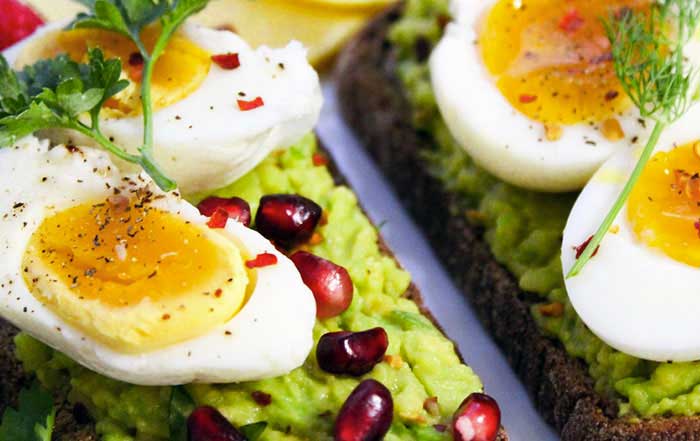The ketogenic diet is a very low-carb, high-fat diet aimed at putting your body into a metabolic state called ketosis. When your body enters this metabolic state, it uses fat to provide most of the fuel for the body. This happens when your body has limited access to glucose (blood sugar), which is where your body usually gets its energy from. To go into ketosis, you usually need to eat less than 50 grams of carbs per day.
As the keto diet is based on reducing the carbs you eat per day, levels of the hormone insulin go down and fatty acids are released from body fat stores in large quantities. A considerable amount of these fatty acids are then sent to the liver and there they are oxidized and turned into ketones, which provide energy for the body and brain. Basically, when your carb and insulin levels are low, your body goes into ketosis, a metabolic state where ketones become the main sources of energy, while these ketones are made of fatty acids released from body fat stores.
Apart from weight loss, ketosis may lead to other health benefits. It can help keep your heart healthy, as it reduces risk factors such as blood triglycerides and cholesterol. It also improves insulin sensitivity, so it helps prevent type 2 diabetes. The diet may also help to lower your blood pressure, get rid of belly fat, and reduce triglycerides. Some research also suggests that a ketogenic diet may have benefits for patients with Alzheimer's disease, cancer, and Parkinson's disease.
Unfortunately, a ketogenic diet may also have negative effects, such as headache, fatigue, constipation, bad breath and high cholesterol levels. Most of these side effects, however, usually disappear within a few days or weeks.
While a ketogenic diet is safe for most people, it's best to check with your doctor before starting it as there maybe some long-term effects not much talked about vs the rapid weight loss.
Some studies suggest that the ketogenic diet is better than low-fat diets for weight loss and it can help you feel more satiated compared to other diets with lower protein content.
A study published on PubMed, titled "The effects of high protein diets on thermogenesis, satiety and weight loss: a critical review," researchers conducted a systematic review of investigations on the effects of high protein diets on dietary thermogenesis, satiety, body weight and fat loss. Accordingly, "there is convincing evidence that a higher protein intake increases thermogenesis and satiety compared to diets of lower protein content." The abstract also states that "the weight of evidence also suggests that high protein meals lead to a reduced subsequent energy intake".
"Some evidence suggests," according to the study "that diets that diets higher in protein result in an increased weight loss and fat loss as compared to diets lower in protein, but findings have not been consistent."
The study concludes that in when starting a diet, "it may be beneficial to partially replace refined carbohydrate with protein sources that are low in saturated fat."
Now that we know the benefits of the ketogenic diet, here's a list of what we can eat on a ketogenic diet:
Meat
Unprocessed meats are low carb, which makes it keto-friendly. If it's organic and grass-fed, even better. Some of the meats you can eat on a keto diet include chicken, ground beef, pork, lamb, bacon, turkey, and ham. Although pork is a fatty meat, it's okay to eat it on a keto diet as it's a high-fat diet, but remember to keep your caloric intake under control for best results.
While on keto, stay away from processed meats, such as sausages and meatballs, which contain added carbs. A good rule-of-thumb is to look at the ingredients and aim for under 5 percent carbs.
Fish and seafood
This is a great, healthy option on a keto diet. Opt for fatty fishes such as salmon, preferably wild-caught fish. Salmon also boasts great health benefits as it is rich in Omega-3 fatty acids, high in B vitamins, it's a good source of potassium, contains antioxidant astaxanthin, and it may help reduce the risk of heart disease, apart from being an ideal source of protein. Remember to avoid fish sticks and breaded fish, in general, due to the added carbs.
On a keto diet, you can also eat eggs, cheese, nuts, berries, dairy and vegetables that grow above ground.

